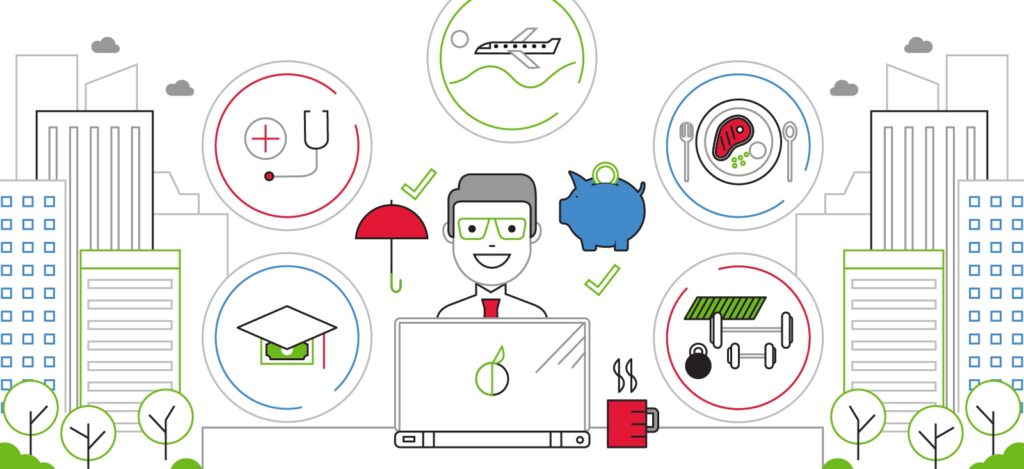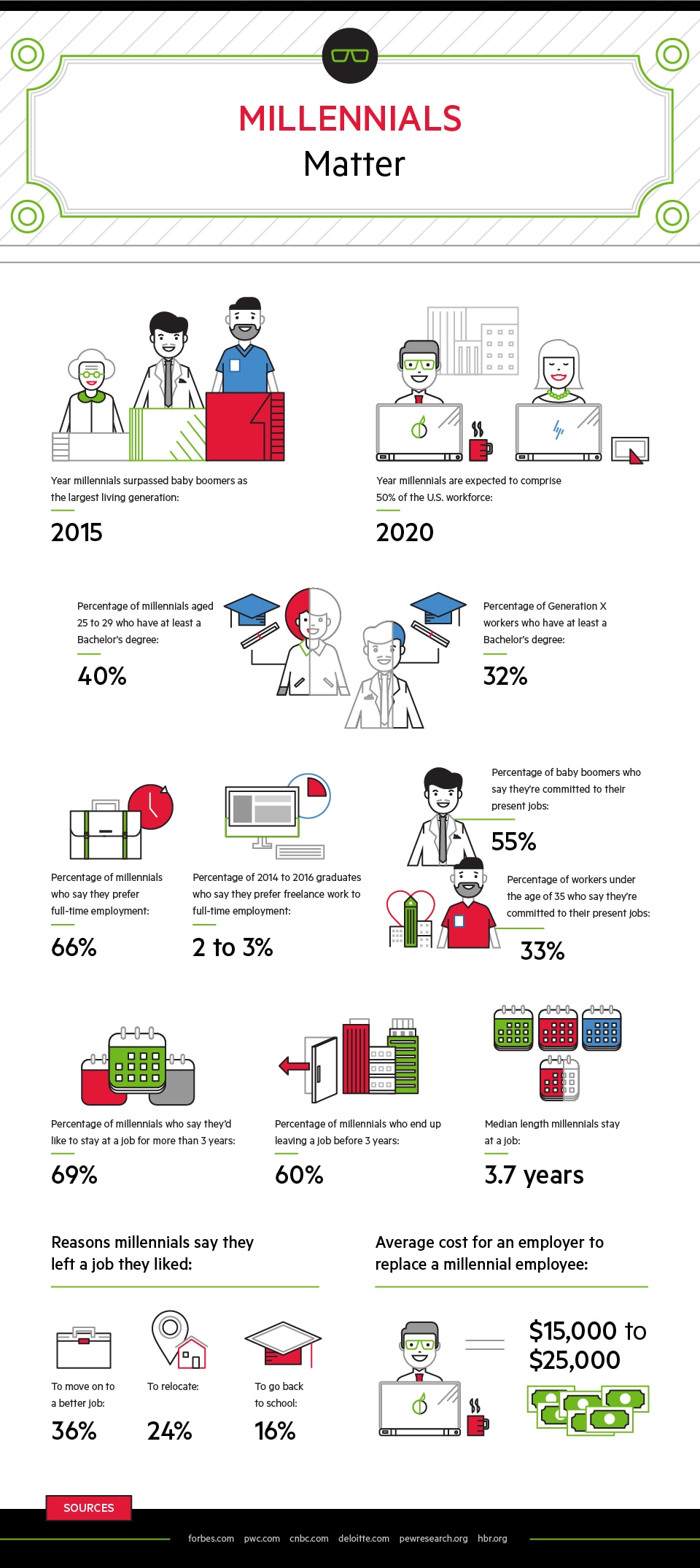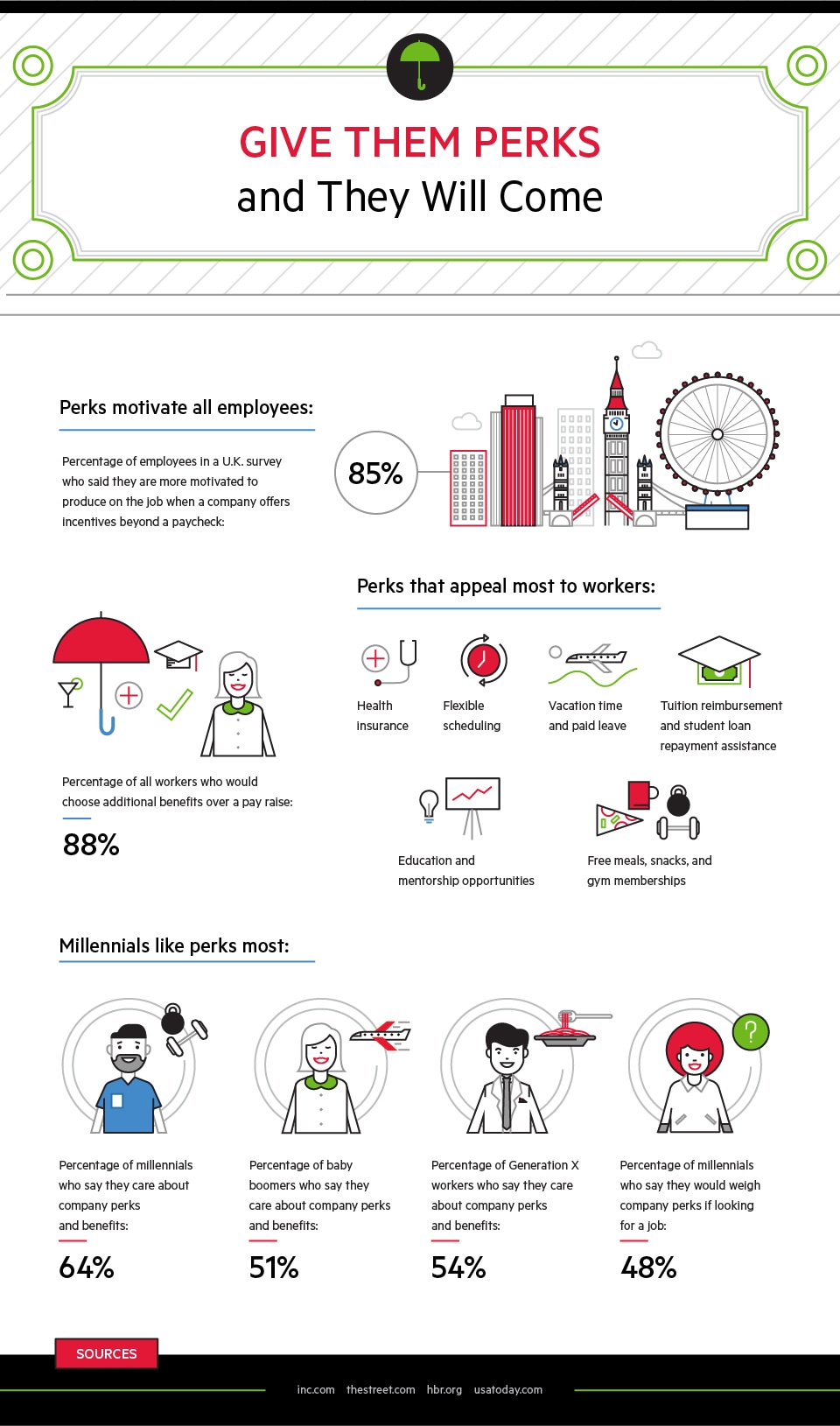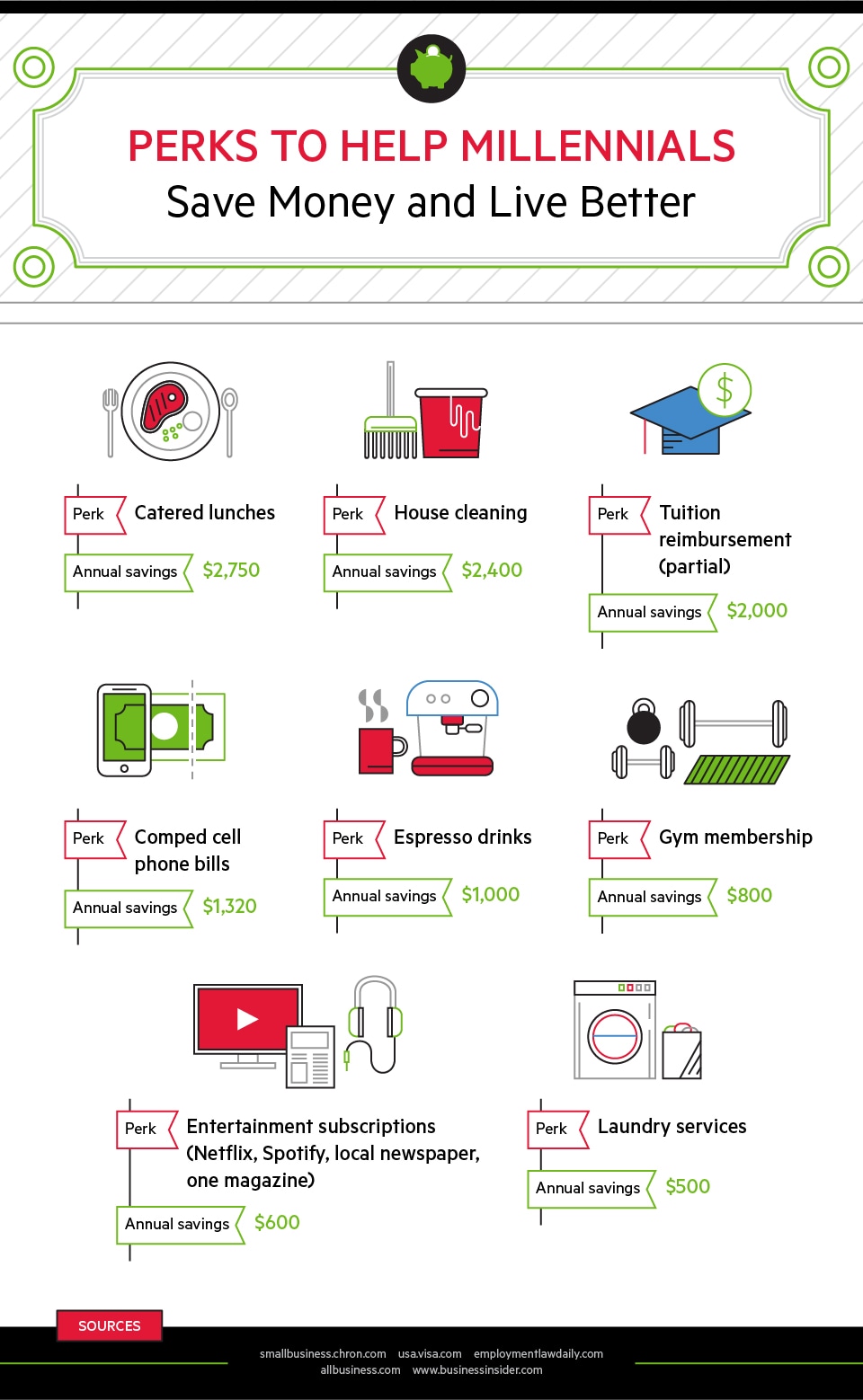The unemployment rate is low, labor shortages have emerged in many areas, and skilled workers are in high demand. Employers can’t afford to neglect millennials, the largest living generation in the U.S. With more than 75 million members, millennials (who currently range in age between 17 and 37) are expected to be the workforce’s largest generation by 2020.
Born between 1980 and 2000, millennials grew up during a time of unprecedented technological and global change. Contrary to popular opinion, the majority of millennials prefer full time work at a company rather than independent freelance work. Research also shows millennials have unique values and financial concerns that impact their work decisions. Want to attract and keep the best and brightest millennials? Keep reading to learn why money-saving work perks may be particularly tempting to the millennial generation and which perks are likely to appeal everyone in the workforce.
Minds on Their Money
Despite high employment numbers, millennials tend to live at home with their parents and delay marriage, children, and home ownership much longer than previous generations, many times for financial reasons. They’re sometimes portrayed as immature or irresponsible, but research suggests thrifty millennials are more financially responsible and save a bigger percentage of their paychecks than other generations. Despite their proclivity for saving, millennials may face a less secure financial future than previous generations because of several distinct challenges.
The result? Many millennials are stressed about finances. In a separate study, 67% of millennials said financial stress interferes with their productivity at work, and 68% say financial stress impacts their physical health.
Continued Education
Millennials also value opportunities to learn, grow, and develop on the job significantly more than baby boomers or Generation X workers. Thus, tuition reimbursement, paid trainings, and mentorship opportunities may be of particular appeal to millennials.
Food and Coffee
When employees offer meals as a part of their incentive package, employees can save major dough. Considering the average American office worker spends $3000 a year on coffee and lunch at work and snack and coffee runs account for 2.4 billion hours of lost productivity each year, both companies and their team members have a lot to gain with in-house meals. By offering great coffee options (and avoiding the burnt, bitter coffee of offices past) and healthy, delicious breakfast, snacks, and/or lunch, you can help keep employees engaged in the office and appreciative they don’t have to drop $15+ on restaurant coffee and food every day.
Lifestyle Solutions
In many ways, millennials aren’t that different from other generations. Benefits such as health insurance, vacation time, paid leave, and flexible scheduling, appeal universally to workers. Money-saving perks, such as catered lunches, free snacks, and help with living expenses, may appeal to the thrifty millennial generation even more than to other generations. Some companies are attracting millennials by kicking in $20,000 to fund employees’ weddings, paying for pet insurance, covering monthly entertainment subscriptions, and offering fertility benefits.
Employers can present money-saving perks in the most appealing way by understanding millennials’ unique buying preferences. Millennials have been called the Nownership Generation because home ownership and car ownership rates are down among young people. The trend away from ownership may partly reflect the rise of the sharing economy with business models such as Lyft, Netflix, and Spotify making it less necessary to own material goods.
Surveys indicate that millennials tend to prioritize spending on experiences. In a Harris study, 78% of millennials said they’d prefer to spend money on a desirable experience rather than a material good. Travel is important to millennials: In one survey, 70% said travel was a major motivation to work, second only to funding basic necessities. Millennials dine out more than other generations, and they attend more special events. In a 2014 study, 82% of millennials said they spent money on concerts, festivals, and other events during the previous year, and 72% said they’d like to spend more money on experiences during the current year.
Travel, dining out, and special events are expensive. Perks that help employees save money on daily necessities help them afford the memorable experiences they value. Benefits that help employees save money while creating a memorable experience may be particularly appealing to millennials. Office happy hour anyone?
Conclusion
Companies should target incentives and benefits to the largest number of workers. With millennials poised in the next few years to comprise half of the U.S. workforce, employers need to keep their unique financial concerns and values in mind. Perks that help millennials advance and grow at work, and shave money off daily living necessities to fund memorable experiences could help your company attract and retain top talent.

















